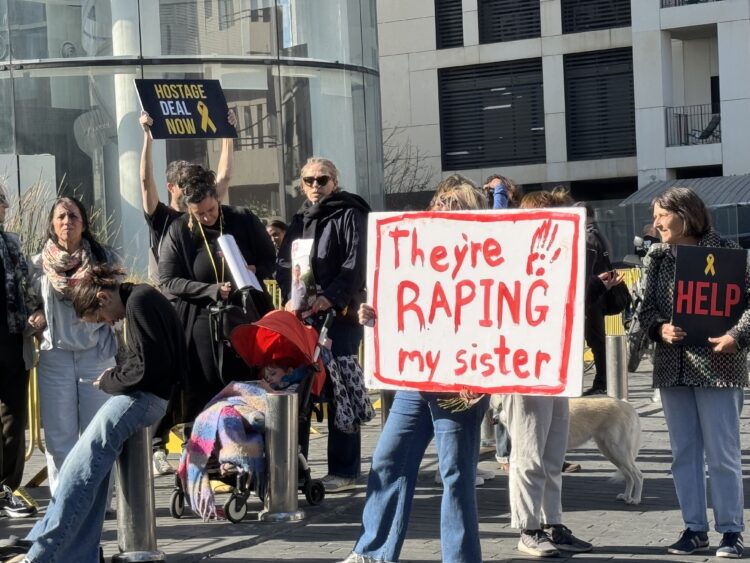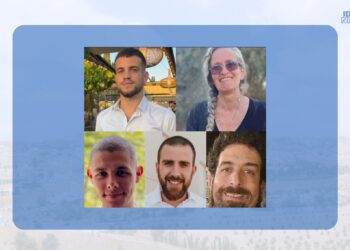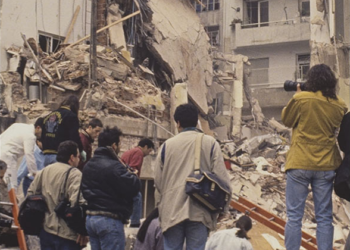U.S. Secretary of State Antony Blinken came to Israel on his sixth diplomatic trip through the region since the October 7th massacre. He had one-on-one meetings with Prime Minister Netanyahu and War Cabinet Minister Benny Gantz Friday, March 22nd in Tel Aviv. Hundreds of protesters gathered in Tel Aviv outside of the Kempinski hotel to get a message across to the U.S. and Israeli teams. Their English-language signs were shocking.
Blinken told the press that during his time in Israel, he focused on the hostage negotiations, had a chance to meet with the families of hostages again, and made progress on closing gaps in the hostage deal. He said “When you get down to the last items, they tend to be the hardest. So there’s still a lot of work to be done, hard work to be done, but we’re determined to try to get it done.”
Blinken also said that one hundred percent of the population of Gaza is acutely food insecure and that a hundred percent is in need of humanitarian assistance. Blinken said that while the U.S. shares Israel’s goal of defeating Hamas, they believe “a major military ground operation in Rafah is not the way to do it. It risks killing more civilians, it risks wreaking greater havoc with the provision of humanitarian assistance, it risks further isolating Israel around the world and jeopardizing its long-term security and standing.”

Blinken said he’s been in conversation with Arab partners about “a future of security and peace not only for Israelis but for Palestinians and other friends in the region.” He also said the U.S. is working to flesh out a path forward. Just days later, the U.S. abstained from voting on a resolution in the United Nations Security Council.
The following Monday, the United Nations Security Council adopted a new resolution with a vote of 14-0, calling for an immediate humanitarian ceasefire in Gaza during the remaining period of Ramadan. Ramadan ends on April 9th, 2024.
The United States, which usually vetoes in favor of Israel, abstained from the vote this time. The resolution has the goal of leading to a “lasting” and sustainable ceasefire. This resolution, notably different from a previously vetoed US-sponsored proposal, calls for the unconditional release of all hostages and has a focus on securing the flow of humanitarian aid throughout the Gaza Strip. But one item does not fall contingent on the other. Prime Minister Benjamin Netanyahu’s office put out a statement which saying “Regrettably, the United States did not veto the new resolution, which calls for a ceasefire that is not contingent on the release of hostages….Today’s resolution gives Hamas hope that international pressure will force Israel to accept a ceasefire without the release of our hostages, thus harming both the war effort and the effort to release the hostages.”
As a response, Netanyahu canceled the Israeli delegation’s visit to the United States. The UN resolution is non-binding and does not actually force any member state to take action. It’s meant to give the country an understanding of the international community’s sentiments.
























Discussion about this post